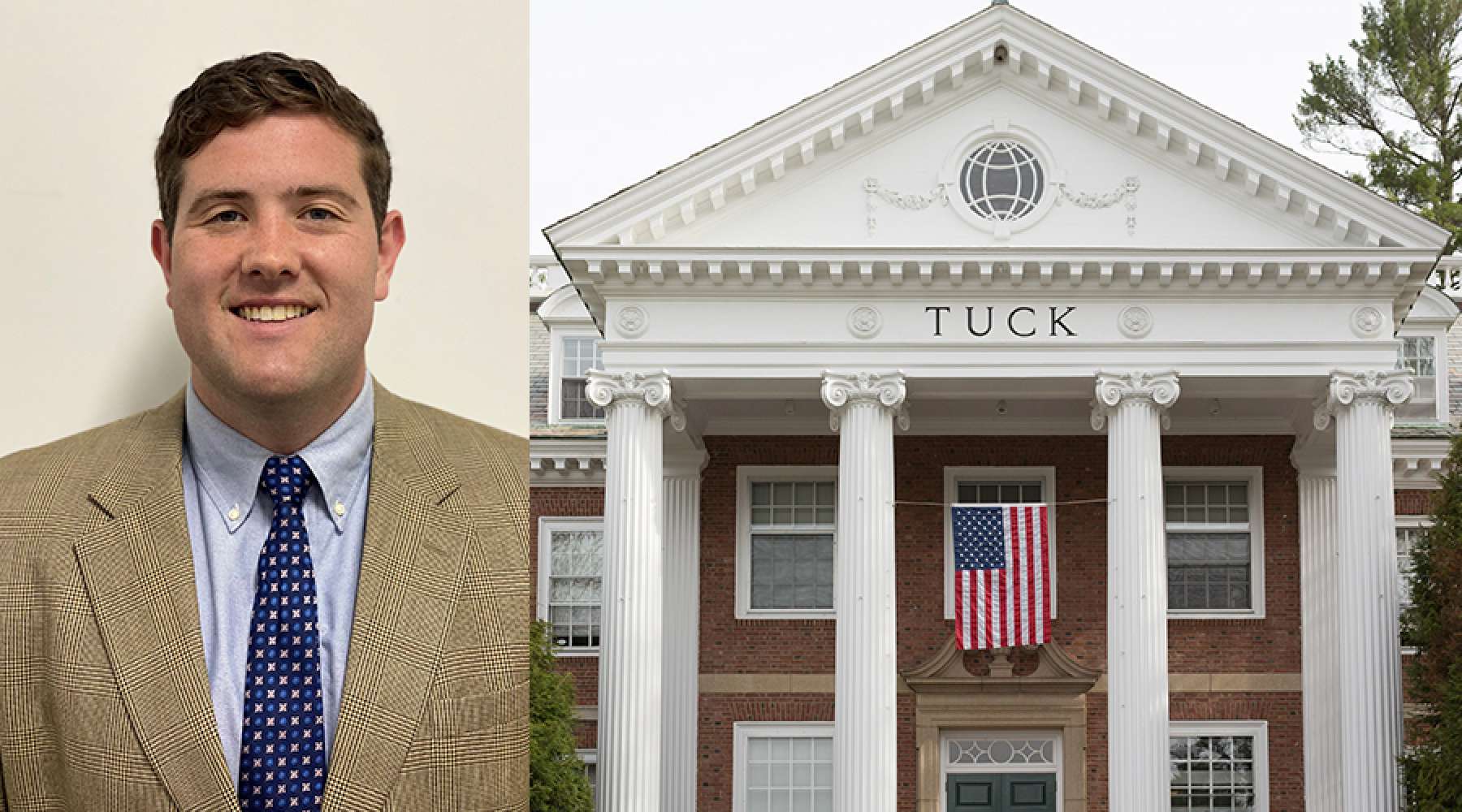
Service members learn to adapt to new environments through deployments and duty station moves. Though each situation is distinct, they’re all within the greater military framework and include built-in support. Now, as you stare down the possibility of leaving this familiar territory to pursue an MBA, it may seem a bit daunting. However, it does not have to be that way.
The community and support at Tuck will be familiar to those used to the camaraderie of the military. As a prospective student, Tuck alumni went out of their way to introduce me to their fellow alums. They supplied varying perspectives and advice on how to approach the application and interview; they helped me talk through my decision of where to attend. Throughout the application process, the strongest voices were the current members of the Veterans Club and several veteran alumni. They were adamant that their time at Tuck helped them successfully transition careers between the military and civilian world. When asked “How so?” each responded the same way: the community.
I think one of the best indicators of alumni love for Tuck is how many faculty and staff members are graduates. As they will tell you, they jumped at the opportunity to come back to Hanover. Their excitement when speaking about their experiences, their careers, and the amazing things their classmates are up to is contagious.
The Upper Valley is unencumbered by the hustle and bustle of a big city. Tuck does an excellent job reinforcing how that intensifies the bond with your classmates during Tuck Launch. To best support the transition from uniform back to university, Tuck offers a two-week orientation period to get your bearings, both in and out of the classroom. From guest speakers to case studies, there are several opportunities to build a dedicated support network that you can rely on from the start. Not to mention, it is also a great time to grab some beers at Dunks or Murphy’s while building that class camaraderie early.
With three weeks of class already in the rearview and recruiting kicking off this week, I can assure you that things move quickly. The professors and faculty understand that. Professors hold review sessions weekly and are willing to work with you if you feel out of your depth. The MBA Program Office (MBAPO) is always standing by to ensure that you get everything out of your experience here.
The veteran experience can be understated or taken for granted while talking to other veterans interested in pursuing an MBA. After being surrounded by it for years, we are desensitized to the distinct nature of our jobs and the experiences that shape a different approach to leadership and difficult conversations. I can assure you your classmates, faculty, and staff are not. They want to hear our stories and the journeys that brought us to Tuck. The perspective we bring is both unique and meaningful—do not discount that.
After a month of living in Hanover, I can confidently say that I love being a member of the Tuck community. Two years in Hanover will pass in the blink of an eye, but I am happy to know that I am forever linked to this incredible place.
This in-person event is programmed to help active-duty servicemen and servicewomen who are interested in applying to an MBA program and to better understand the process, the perks, and our unique community at Tuck.
Reilly grew up in Richmond, VA, and graduated from the United State Naval Academy in 2017 with a B.S. in History. Upon graduation, he was commissioned as a Surface Warfare Officer. Reilly served in the Engineering Department as the Auxiliaries Officer onboard the guided-missile destroyer USS SPRUANCE (DDG 111) out of San Diego, CA, and deployed to the Western Pacific and Arabian Gulf. For his second sea tour, Reilly served as the Training Officer onboard the dock landing ship USS TORTUGA (LSD 46) out of Norfolk, VA. During his free time, Reilly enjoys live music, cooking, golf, and skiing.